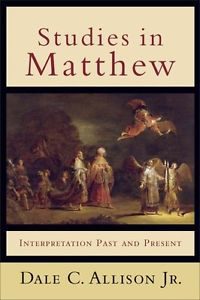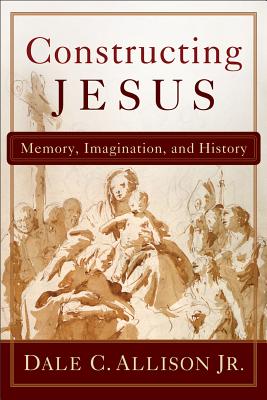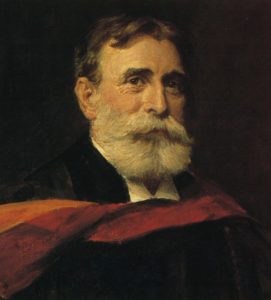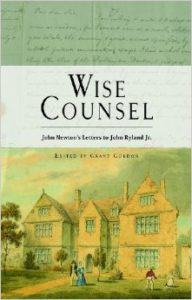Gurry, Peter J. “How Your Greek NT Is Changing: A Simple Introduction to the Coherence-Based Genealogical Method (CBGM),” JETS 59, no. 4 (2016): 675-89.
This is a readable article on a new method in textual criticism, perhaps most notable for being employed in the General Epistles in the NA and UBS texts. Helpfully, he includes an index to discussions of variant readings in the General Epistles where CBGM played a role in the editor’s decisions.
I came across this article via an audio interview with Gurry that discusses the article. Gurry also posts at https://evangelicaltextualcriticism.blogspot.com/.

 Allison, Dale C., Jr., “Reading Matthew through the Church Fathers.” In Studies in Matthew: Interpretation Past and Present. Grand Rapids: Baker, 2005.
Allison, Dale C., Jr., “Reading Matthew through the Church Fathers.” In Studies in Matthew: Interpretation Past and Present. Grand Rapids: Baker, 2005. Allison, Dale C., Jr. “Excursus 1: The Kingdom of God and the World to Come.” In Constructing Jesus: Memory, Imagination, and History. Grand Rapids: Baker, 2010.
Allison, Dale C., Jr. “Excursus 1: The Kingdom of God and the World to Come.” In Constructing Jesus: Memory, Imagination, and History. Grand Rapids: Baker, 2010. Warfield, Benjamin B. “The First Question of the Westminster ‘Shorter Catechism.'” In The Works of Benjamin B. Warfield. Volume 6. 1932; Reprinted, Grand Rapids: Baker, 2003.
Warfield, Benjamin B. “The First Question of the Westminster ‘Shorter Catechism.'” In The Works of Benjamin B. Warfield. Volume 6. 1932; Reprinted, Grand Rapids: Baker, 2003. Jacobs, Alan. The Book of Common Prayer: A Biography. Lives of Great Religious Books. Princeton University Press, 2015.
Jacobs, Alan. The Book of Common Prayer: A Biography. Lives of Great Religious Books. Princeton University Press, 2015.
 Robinson, Marilynne. Gilead.
Robinson, Marilynne. Gilead. This is a collection of letters, many previously unpublished, from the Anglican minister John Newton to the Baptist minister John Ryland, Jr. The name of John Ryland, Jr. may be unknown to many, but he was one of the rope-holders for William Carey, who is well-known for his pioneer missionary work in India. The letters begin when Ryland is a young man and continue into Newton’s last years of life. The title of the book captures their nature. These are letters of wise counsel from an older minister to a younger. Since they cover such a long span of time, a whole variety of life’s experiences are commented upon. These are well worth reading and meditation.
This is a collection of letters, many previously unpublished, from the Anglican minister John Newton to the Baptist minister John Ryland, Jr. The name of John Ryland, Jr. may be unknown to many, but he was one of the rope-holders for William Carey, who is well-known for his pioneer missionary work in India. The letters begin when Ryland is a young man and continue into Newton’s last years of life. The title of the book captures their nature. These are letters of wise counsel from an older minister to a younger. Since they cover such a long span of time, a whole variety of life’s experiences are commented upon. These are well worth reading and meditation.